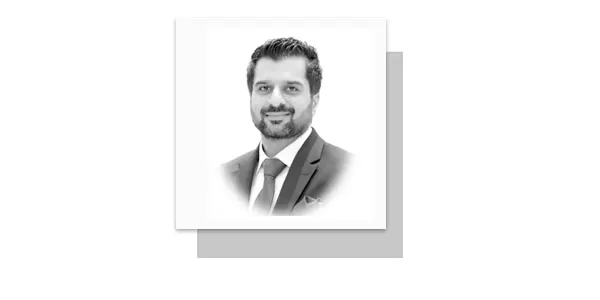THROUGHOUT history, humans have always sought ways to improve communication, build relationships, and exchange ideas due to their social nature. The transformation of human interaction, from ancient local communities to modern global virtual societies, has been truly remarkable. The internet gave birth to social media, opening up a whole new world of human communication. In the early 2000s, platforms like MySpace and Orkut emerged, enabling users to build online communities through profile creation. The digital landscape was soon dominated by social media giants such as Facebook, Twitter, and YouTube.
In the beginning, these platforms were considered harmless inventions. At a time when the internet was still new, social media was seen as a novel concept and an exciting tool. The far-reaching impacts of the platforms being unregulated were difficult to foresee. Social media platforms emerged in recent decades as a result of the increasing desire for improved communication, offering effortless connections between people worldwide. However, similar to other technological advancements, social media present its unique challenges. Social media, once a means of connection, has now become a catalyst for chaos due to the inability to prevent its misuse, resulting in social and political divisions.
The advantages of social media are illuminated by its positive side. When it first emerged, social media was celebrated for its potential to connect people from diverse backgrounds, promoting empathy and cultural exchange. It offered a platform for people to freely express their thoughts, experiences, and feelings, regardless of their location. From the beginning, and even now, this concept is quite attractive. Powerful transformations and collaborations have been facilitated by social media platforms. Through this platform, individuals can exchange ideas, collaborate on projects in real time, and advocate for causes that drive social change.
In addition, social media has enabled small entrepreneurs to thrive by giving them a virtual marketplace. Artists, writers, and thinkers have connected with like-minded individuals and found places to showcase their work. Collaborating across borders is now more achievable than ever. Despite its positive aspects, social media’s transformative potential has been misused, causing the chaos we see today. Today, social media has gone beyond its initial purpose of connecting people and has unfortunately become a tool for spreading chaos, false information, and the disintegration of society. Its misuse by various entities has resulted in the rapid deterioration of civil discourse, despite its intended purpose for interaction.
The ease of spreading misinformation and political propaganda has been greatly facilitated by social media. The rapid spread of fake news leads to divided societies and fosters mistrust. The deliberate targeting of cultures on social media leads to intercultural tensions due to misconceptions. Others are frequently targeted and defamed by groups on these platforms, with little to no consequences. The grave challenge of fake news has become increasingly prevalent in our time. The dissemination of false information on social media has had tangible consequences, whether it pertains to elections, pandemics, or global crises. Moreover, the rise in online identity theft cases is another worrying issue. The cloning or hacking of social media profiles can lead to considerable emotional and financial damage.
Additionally, public opinion is swayed and agendas are promoted by powerful interest groups through the manipulation of social media algorithms. The manipulation deceives the public by creating a false sense of popular opinion. Using social media, reputations can be maliciously ruined. Public figures, businesses, and regular people frequently experience targeted harassment campaigns, resulting in reputational and emotional turmoil. The power of social media is being exploited by terrorist groups for recruitment, spreading ideology, and coordinating attacks. The security impacts are far-reaching. Last but not least, social media platforms have played a role in the growing xenophobic sentiments across the globe. These platforms have become a breeding ground for hostility towards immigrants, minorities, and foreign cultures, allowing the unchecked spread of misinformation.
Global systems have failed to prevent the misuse of this platform, turning it from a tool for connection to a source of chaos. The owners of social media platforms are ignoring the fact that these platforms are becoming breeding grounds for cultural and regional conflicts. Social media platforms are causing negative consequences that are spreading beyond regional boundaries, worsening the situation. To maintain the original purpose of social media as a tool for connectivity, various measures must be taken: all stakeholders should urgently address this issue to transform social media into a platform that promotes global connectivity. Social media companies must be held responsible for the content circulating on their platforms. Governments and regulators need to ensure that transparency and responsibility are mandated by law.
A reliable way to combat harmful online activities is by establishing a comprehensive verification process for every user. It would become increasingly challenging for malicious actors to conceal their identity and cause damage using fake profiles. Social media started as a hopeful means of global connection and collaboration, but its misuse has made it a source of chaos. Both users and governments must now take on the responsibility of using social media for its original goal of building a harmonious and knowledgeable global community. The true potential of social media as a positive force can be restored through stricter regulations and digital literacy promotion. Social media serves as a global medium connecting the world like a village. Without constructive use, social media platforms cannot bring positive benefits to the world. If this happens, social media will transform into a monstrous force, making the peaceful survival of humanity an unrealistic aspiration.
—The writer is an educationist and a Commoner from 44th Common, based in Sargodha.
(waqarhassancsp@gmail.com)










